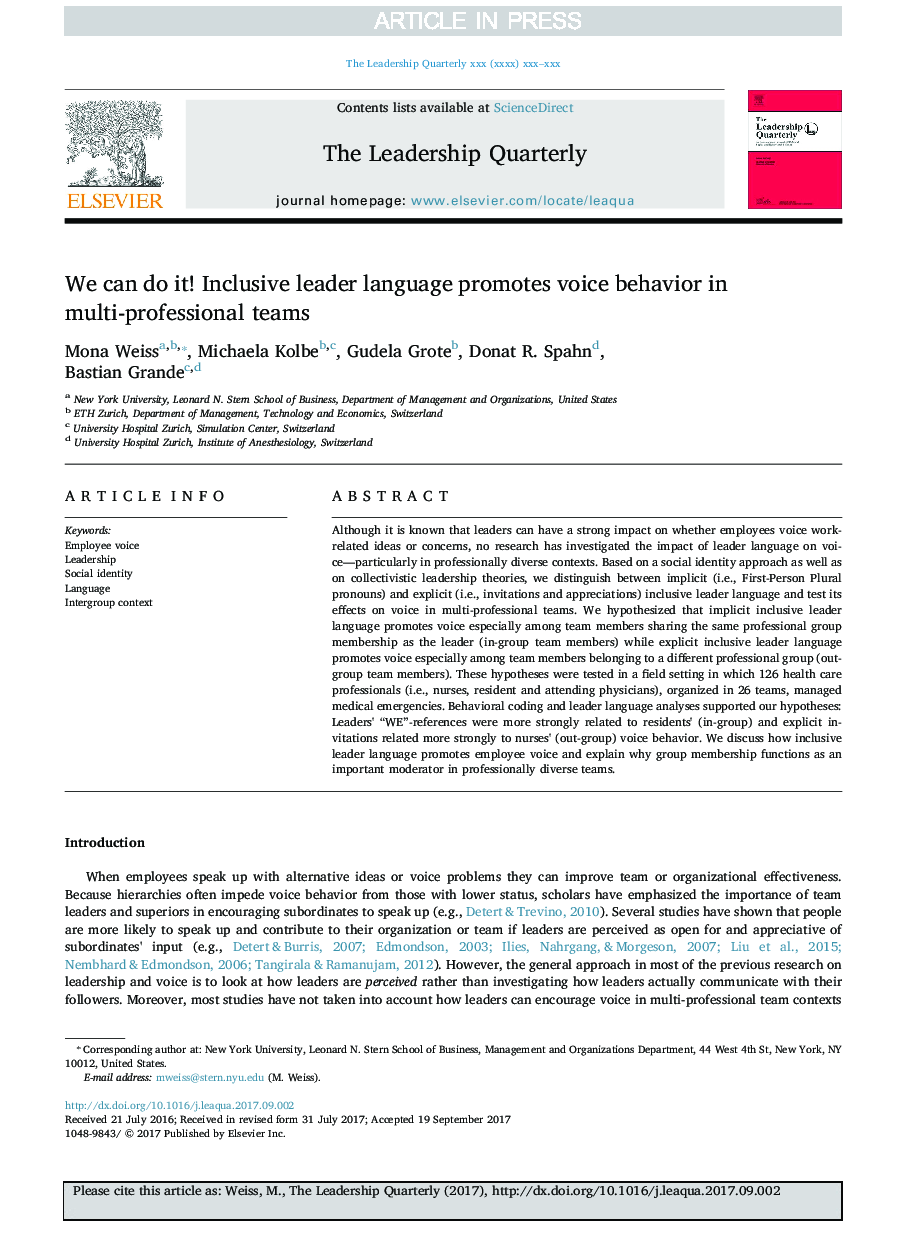| Article ID | Journal | Published Year | Pages | File Type |
|---|---|---|---|---|
| 7247779 | The Leadership Quarterly | 2018 | 17 Pages |
Abstract
Although it is known that leaders can have a strong impact on whether employees voice work-related ideas or concerns, no research has investigated the impact of leader language on voice-particularly in professionally diverse contexts. Based on a social identity approach as well as on collectivistic leadership theories, we distinguish between implicit (i.e., First-Person Plural pronouns) and explicit (i.e., invitations and appreciations) inclusive leader language and test its effects on voice in multi-professional teams. We hypothesized that implicit inclusive leader language promotes voice especially among team members sharing the same professional group membership as the leader (in-group team members) while explicit inclusive leader language promotes voice especially among team members belonging to a different professional group (out-group team members). These hypotheses were tested in a field setting in which 126 health care professionals (i.e., nurses, resident and attending physicians), organized in 26 teams, managed medical emergencies. Behavioral coding and leader language analyses supported our hypotheses: Leaders' “WE”-references were more strongly related to residents' (in-group) and explicit invitations related more strongly to nurses' (out-group) voice behavior. We discuss how inclusive leader language promotes employee voice and explain why group membership functions as an important moderator in professionally diverse teams.
Related Topics
Social Sciences and Humanities
Business, Management and Accounting
Business and International Management
Authors
Mona Weiss, Michaela Kolbe, Gudela Grote, Donat R. Spahn, Bastian Grande,
